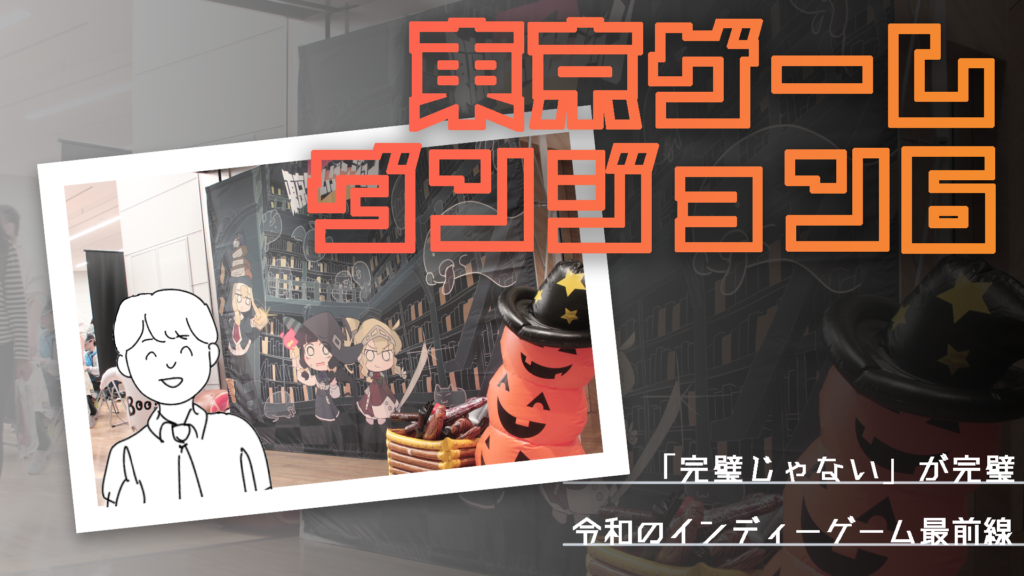

Hello, this is Mob. I am in charge of development as a Unity beginner in the Negorabu team of SKOOTAGAMES. Usually, I just create games and go home, but this time I was surprisingly put in charge of the report for Tokyo Game Dungeon 6.
I was not originally supposed to write articles, but somehow it turned out to be my turn… Well, since it’s a valuable opportunity, I will take the chance to write.
Today, I would like to talk about the “essence of indie games” that I discovered from my perspective.
A Casual Organizational Assessment You Can Play on Your Smartphone: 悪の組織の適職診断


The first game I’d like to introduce is “悪の組織の適職診断”. Being in a company that feels like a villain organization struggling with overtime every day, I was immediately drawn to this title. The fact that all the characters are cats is also noteworthy. I thought it was a fresh combination of cuteness and the unexpectedness of being a villain organization.
The gameplay itself is a personality assessment mini-game that lasts about three minutes. It’s a free game published on the web, so it doesn’t have a lot of volume. In this case, I think that might be the “essence” of this game.
What particularly caught my eye was the exhibition. They utilized QR codes and NFC cards to create a system that allows visitors to play casually on their own smartphones. As a Unity beginner, this was an element I wanted to take reference from.

I noticed several thoughtful features, such as a screenshot function for the results screen and a social media share feature. I realized that the indie game’s “small yet detailed” craftsmanship led to a solid level of completion. Even within the short playtime, there were ingenious ideas to entertain the player, making it an incredibly enjoyable gaming experience.
[blogcard url=”https://www.freem.ne.jp/win/game/32658″]
Unexpected Strategy in Challenge Plays: つなげてすてーしょん
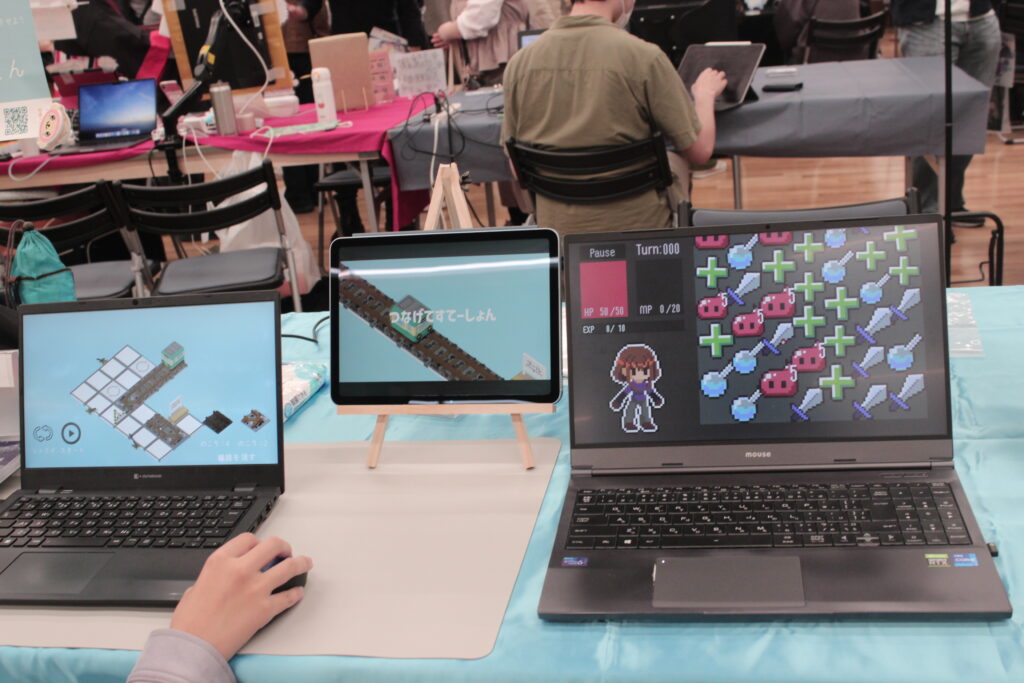

Next, I’d like to introduce “つなげてすてーしょん”. At first glance, it looks simple, but once you try playing it, you find it quite challenging.
The game mechanics work like this: You guide a train on a map to the goal, but it won’t move until you place all the provided straight and curved tracks. The enforced idea of having to place the tracks is interesting.
However, the difficulty was higher than I expected. Particularly, there’s a gimmick tile that rotates the track 90 degrees when passing through a switch, which caused me quite a bit of trouble. But what was most impressive about this game was a certain “discovery” found in the final stage. After getting stuck for about 10 minutes, I received the unexpected advice from the developer that “You actually don’t need to use all the tracks.”
This might be a fatal flaw for a puzzle game, but it left a good impression as an element of playfulness unique to indie games. It certainly wasn’t because the puzzles were too difficult. Instead of perfect craftsmanship, a sense of freedom that allows for unexpected solutions could be one of the great things about indie games.
[blogcard url=”https://unityroom.com/games/connectstation”]
Explaining the Path of Buddhism with a Clicker: 仏陀摩真
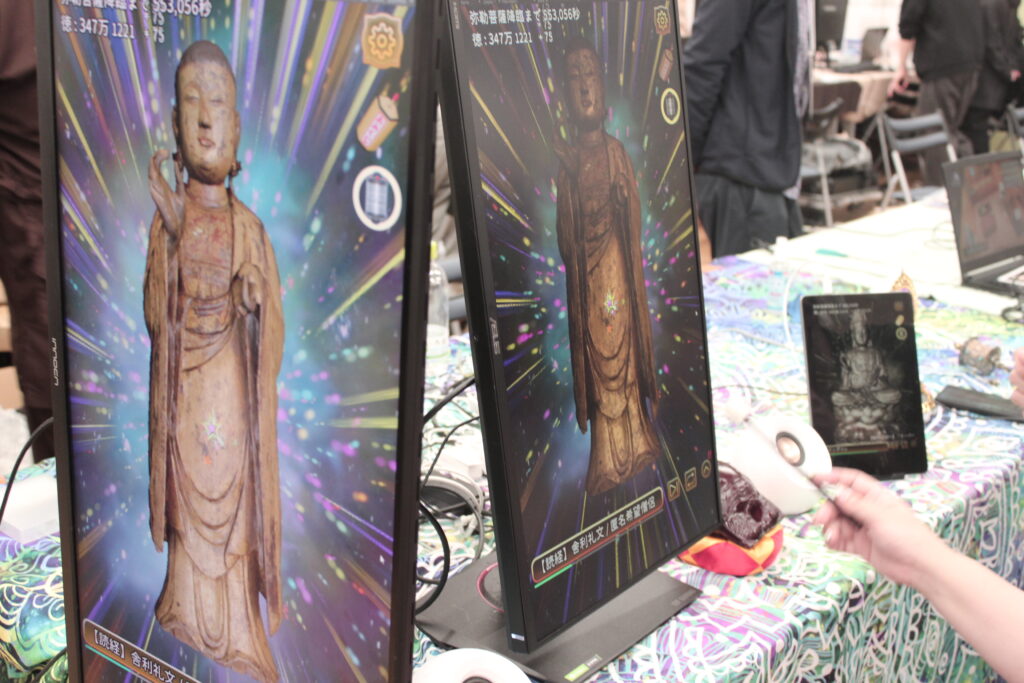
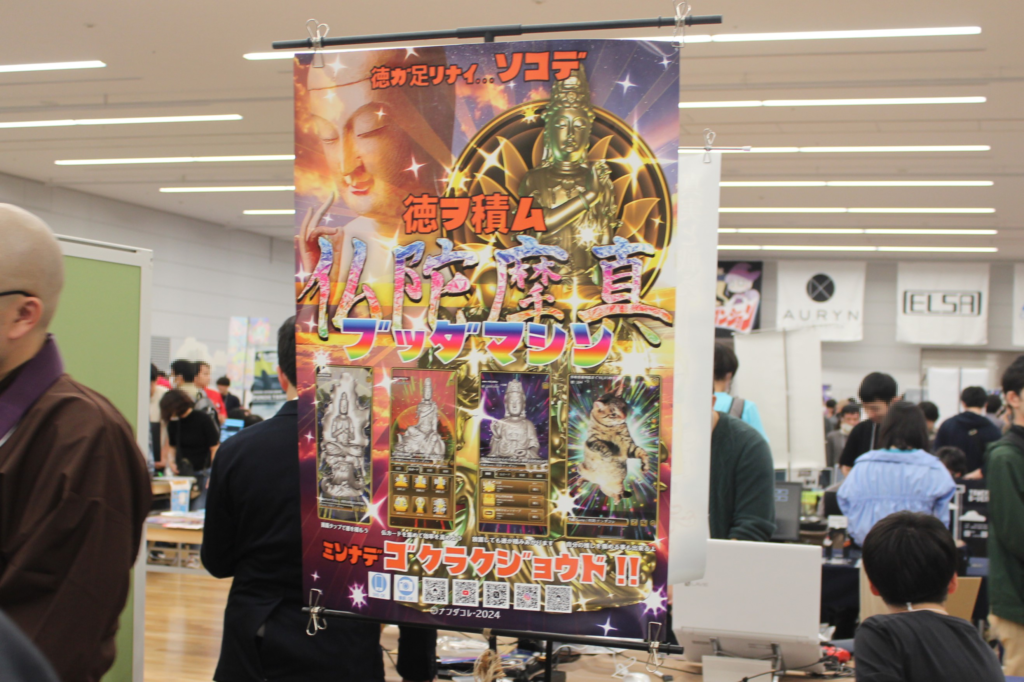
The third game I’d like to introduce is “仏陀摩真”. At first glance, it appears to be a simple clicker game, but it’s an ambitious work that incorporates Buddhist teachings well.
The basic system is as expected. You touch the Buddha statue to accumulate points, and with those points, you boost your stats… This might seem like a regular clicker game.
But what’s interesting is that you can play this game without needing the Buddha statue. In other words, you can use a photo of your “pet”—for example, your cat’s picture—to play this game. The idea of transforming “attachment” into “merit” really gives a sense of depth to the teaching.

This is what you call the “pure land.”
Another surprise was the absence of a ranking feature. It seems to come from the Buddhist idea that the important thing is to fight against yourself, not others.
Additionally, I had a chance to hear various explanations from the developer at the booth. Among them, I still can’t forget the reason why one particular developer had a shaved head.
“Is hair really necessary in entertainment?”
This answer honestly struck a chord with me. (Of course, I don’t plan to shave my head)
If it had just been a clicker game with a Buddhist twist, it might have ended up as a light joke game. However, thanks to the earnest attitude of the developers, it successfully took form. This was a work that felt like the potential to express bold ideas unique to indie games.
[blogcard url=”https://buddhamachine.online/”]
Irony Weaved Between Education and Hell: 子どもたちの庭


The fourth game is “子どもたちの庭”. I was truly shocked by this game.
At first glance, it looks like a simple puzzle game where blocks are stacked, but in fact, it is based on the Japanese folklore of “Sayonakawa,” where children who pass away before their parents stack stones, and a demon suddenly appears to continue to destroy what they build… Using such a cruel worldview.
Combining this with the educational toy “Froebel’s Gifts,” and expressing it with a UI resembling educational software from the 2000s was, to be honest, a bold idea in the best sense. The combination of educational elements and a hellish worldview evokes an indescribable deep darkness.
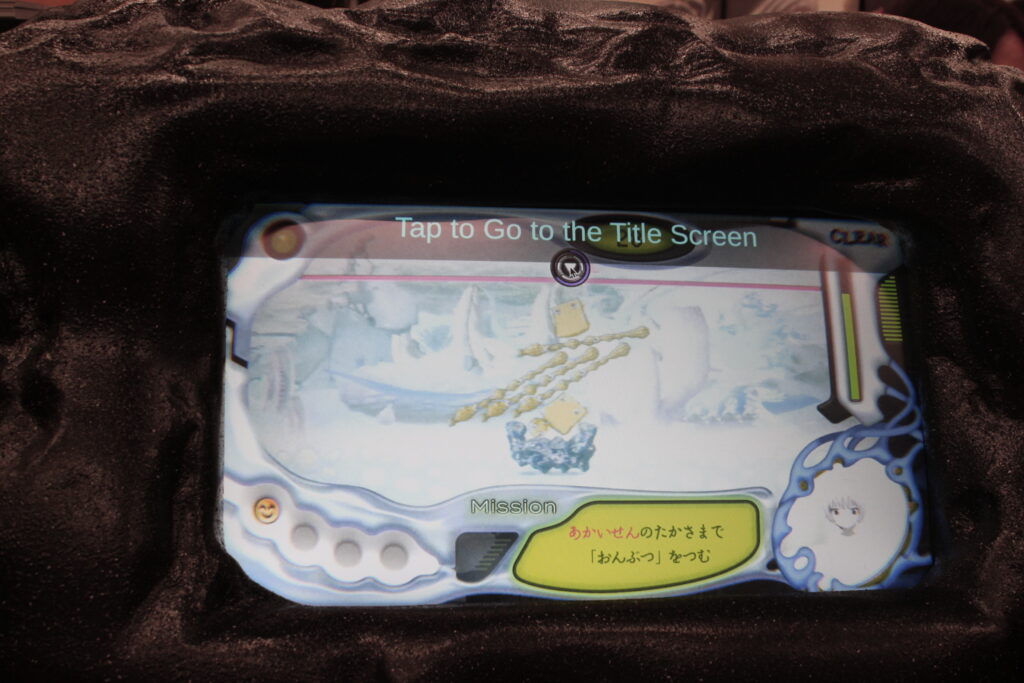
The system itself is indeed simple. You’re just stacking blocks; however, that world view and system match perfectly to create an experience that transcends just being a puzzle game. The playtest consists of four stages, each with a short playtime, but the density of the content was impressive, featuring multiple endings.
The sound design was also quite meticulous, enhancing the quality of the atmosphere with somewhat uncomfortable sound effects and unique music created by some indie band.
It was a piece that was so well-crafted that it was hard to even identify any “flaws.” It left me wondering if indie games could be pursued to such depths, and it was a highly anticipated work that I look forward to its release.
A Fragrant Nostalgia: 東京珈琲パンデチカ
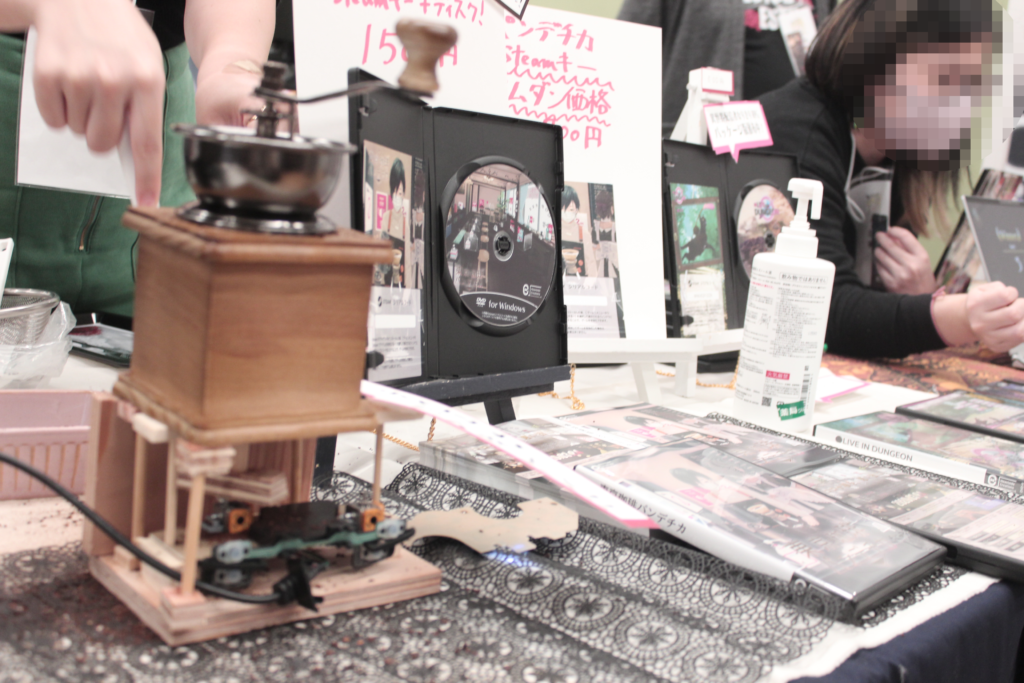
The fifth game is “東京珈琲パンデチカ”. What left an impression at this game’s exhibit was the coffee aroma wafting through the air.
The game involves serving coffee to customers in front of you, where the tempo and the quality affect the scores… It appears to be a regular café game, but the unique point of this game is that it is set during the “COVID-19 pandemic.” Moreover, it’s presented with a refreshing angle of “nostalgia.” When I asked the developers, “Is it already that time period?” they responded, “It might be about time,” which made sense.
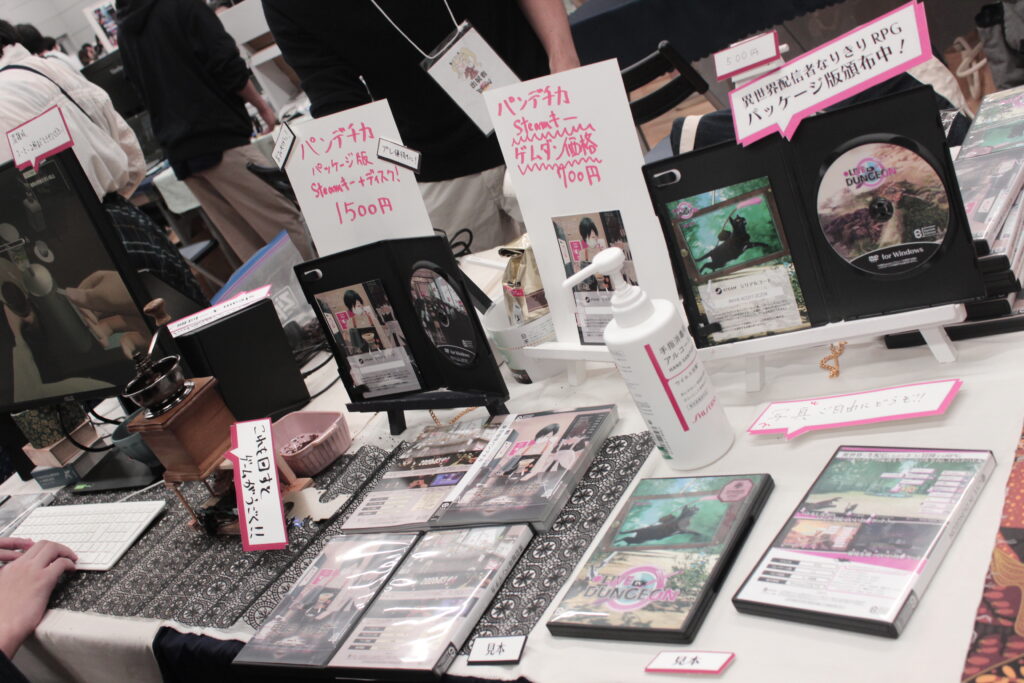
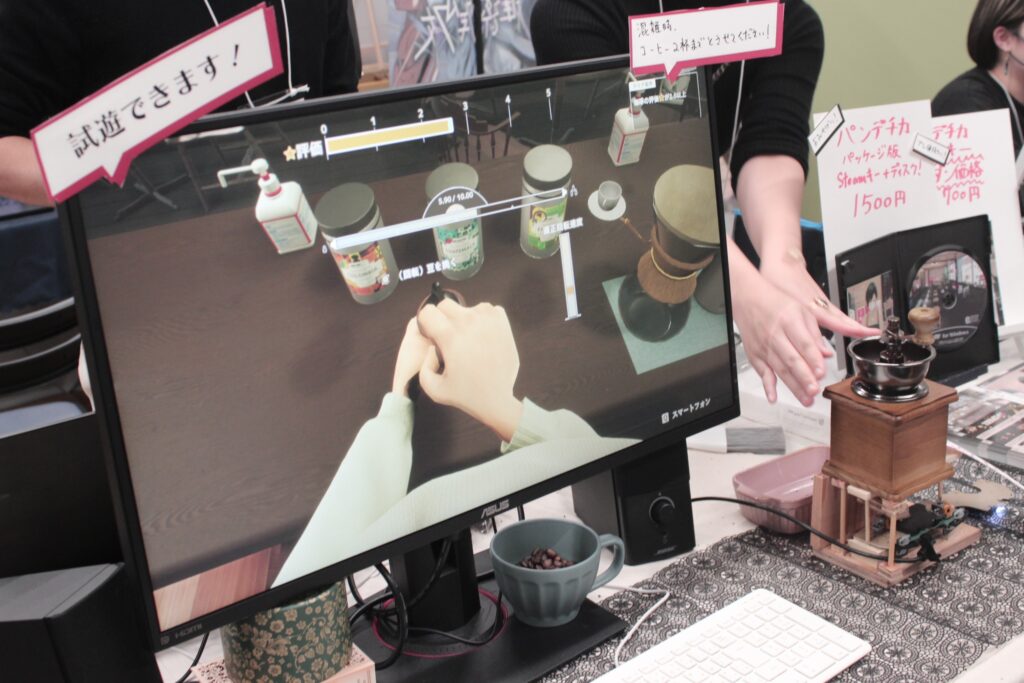
The way of displaying it was also quite good. Using a controller resembling a real coffee grinder to grind beans just like in the game proved to be unexpectedly effective.
The aroma of coffee wafting from the booth, the nostalgic theme of reminiscing the past, and the combination of real experiences made the display method remarkable… Even now, when I think about the booth, I faintly recall the smell of coffee, and I can only describe its presentation as “smart.”
Indie games can express such “experiences,” you know.
No Longer Just a Workout: 全トレ
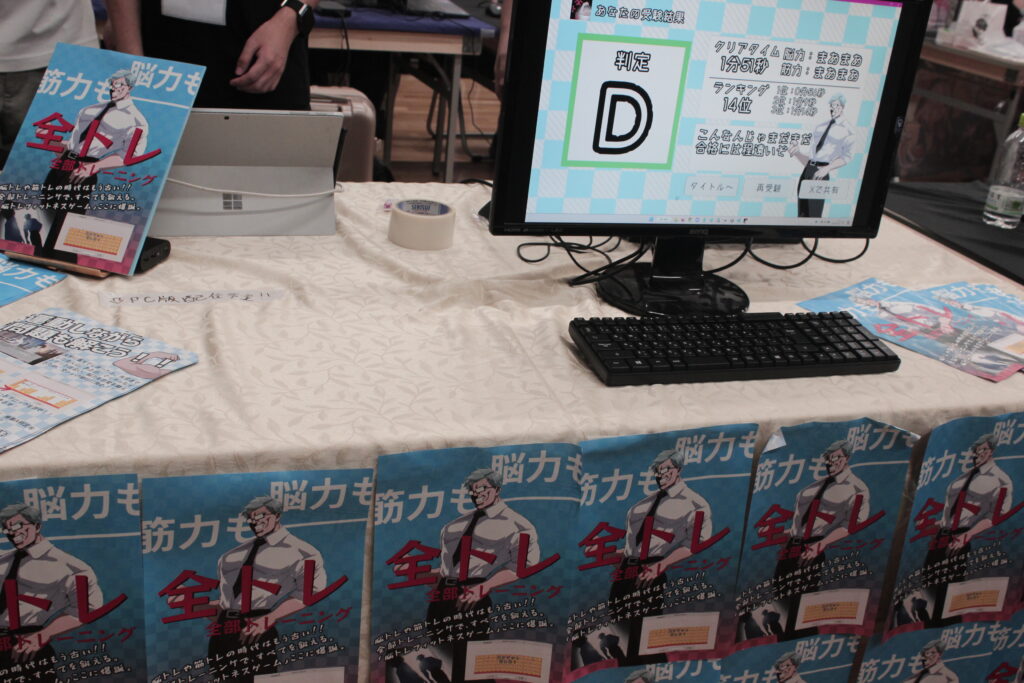
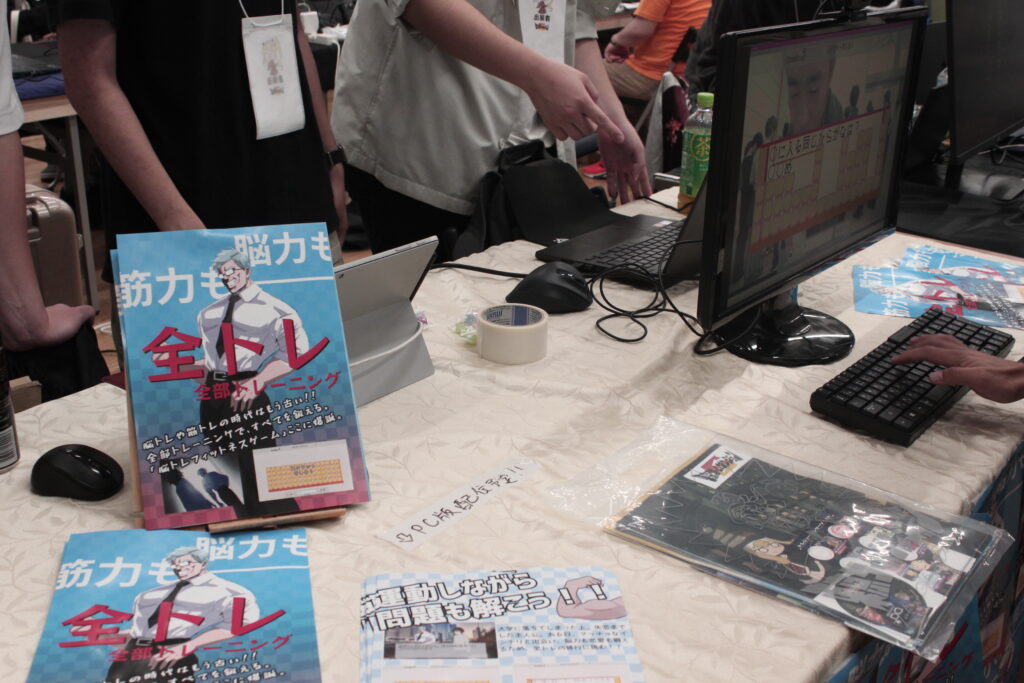
Finally, I’d like to introduce “全トレ”. This game aims for simultaneous training of both muscles and mind, or simply put, a comprehensive workout experience. When I approached the booth, it was bustling with people watching someone desperately squatting in front of a monitor… Of course, this piqued my curiosity.
The mechanics were like this: The webcam attached to the monitor detects the up-and-down movement of the face, and based on that, blocks disappear on screen. Behind these blocks are moderately challenging trivia questions, so the player must continue squatting to find the answers… According to the developer, they prepared around 100 questions, which is quite impressive.
Actually, I’ve seen many workout-type games at events, so I didn’t have much expectation for this one, but this game had a peculiar feature that set it apart from the usual novelty games. It allows players to simply take a selfie with their smartphones and move their heads up and down to clear the challenges… Though it deviates from the traditional workout concept, the developer seems to consider that as “fine.”
This free and fun idea represents the true essence of indie games.
I didn’t actually play it since my camera might break, but watching others have fun while playing made me feel joyful as well.
Reflecting on Game Dungeon 6…
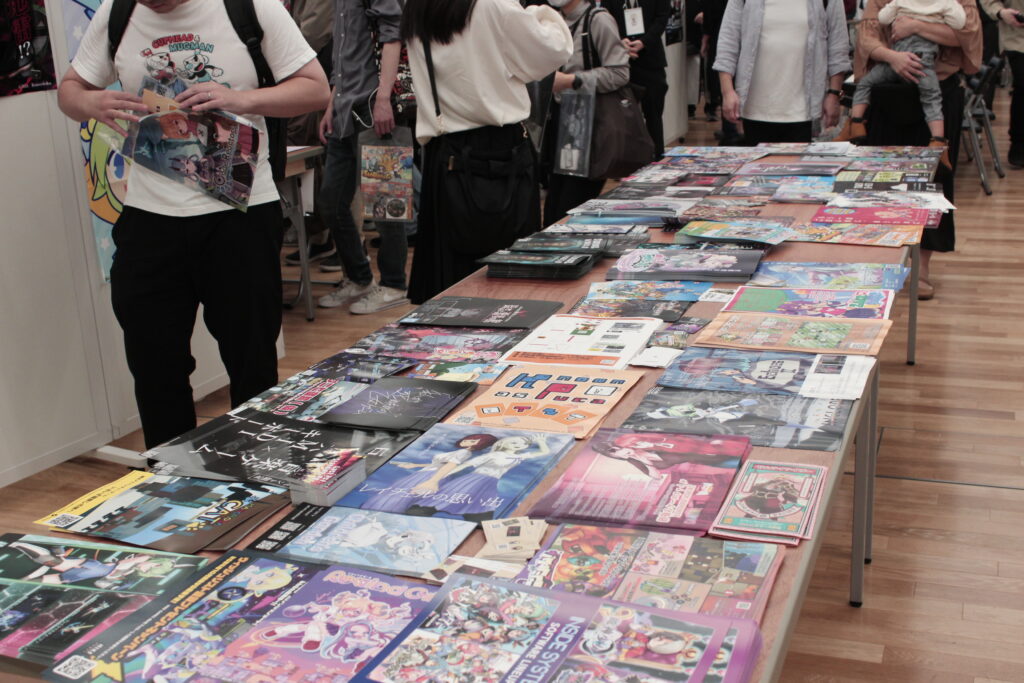
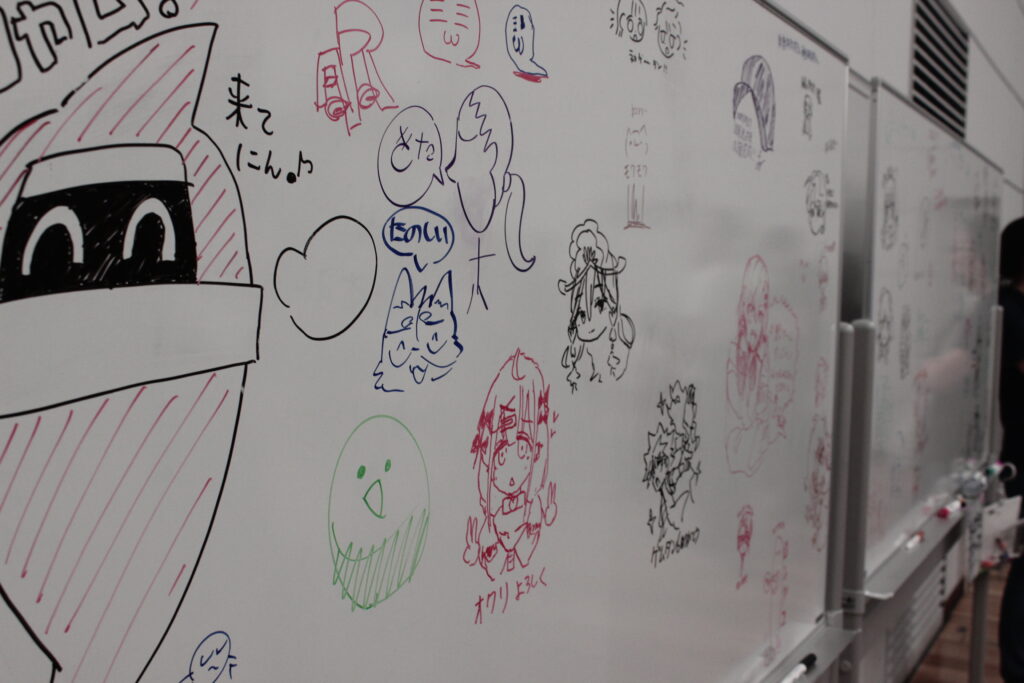
Having introduced six games, I feel I have once again realized the fun of indie games.
It’s not about aiming for perfect craftsmanship, nor is it about being sloppy. That “just right” sense of balance might be the charm of indie games, and this has given me an opportunity to reconsider that.
From the cat career assessment, station puzzles, Buddhist teachings, children in hell, COVID café, to even workout games… Although the themes are all quite different, each clearly conveys the developers’ aspirations. I feel like I still have a long way to go just making games casually, but someday I hope our company’s games can evoke that same “just right” feeling in someone.
While looking forward to that, I’ll wrap up today’s report since it’s almost time for me to go home. See you later.
